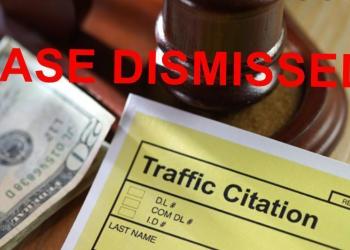By Robert Phillips, Deputy District Attorney (Ret).
Brady Error in an Infraction Case: Some time ago, the San Diego City Attorney’s Office quit sending its deputies into court to answer up “For the People” in the prosecution of infractions, leaving the in-court trial procedures to the judge, defendant and his or her defense counsel (if any), and the prosecution’s witnesses (usually the citing law enforcement officer). It was an issue of “resource allocation pressures;” certainly understandable in today’s tight budgets and limited personnel. The City Attorney’s Office continued to issue subpoenas and handle appeals, but that was basically it. Since late 2017, the San Diego City Attorney took it a step further in infraction prosecutions and relinquished its discovery duties as well to the citing law enforcement agency. Taking itself out of the middle, the City Attorney merely referred anyone making a discovery request in an infraction case to the law enforcement agency that issued the citation being contested. In the recent case of People v. Houser (Apr. 13, 2022) 78 Cal.App.5th Supp 1, the Fourth District Court of Appeal (Div. 1) addressed the issue of what happens when the concerned law enforcement agency fails to provide the defendant in an infraction prosecution with the requested discovery. In this case, Mr. Houser was cited by a San Diego police officer for illegally camping overnight in Balboa Park; an infraction under San Diego Municipal Code § 63.0102(b)(12). Houser hired an attorney who made the typical fishing expedition discovery request, seeking access to any and all possible prior citizen complaints against the officer, body worn camera footage, any exculpatory evidence pursuant to Brady v. Maryland (1963) 373 U.S. 83, and a complete witness list. Ignoring the standard statutory discovery procedures as set out in Pen. Code §§ 1054 et seq., the City Attorney, pursuant to its policy, merely referred Houser’s attorney to the San Diego Police Department. Making a long story short, SDPD responded to defense counsel’s request with either a denial that any of the requested information existed, or by ignoring the request (such as for the citing officer’s body camera footage). The City Attorney declined to get involved, telling the court at one point that it was the PD’s job to cough up the requested information. Well, that argument didn’t fly. Despite it never being shown that there was any potentially exculpatory or witness impeachment evidence to be found, the trial court ruled that dismissal of the case was the appropriate remedy for the City Attorney’s failure to comply with Brady. As noted by the Appellate Court, here’s the Brady rule in a nutshell:
“Brady places on a prosecutor an affirmative, constitutional obligation to seek, review and turn over exculpatory evidence (including merely impeaching material), even without a defense request. [‘The individual prosecutor has a duty to learn of any favorable evidence known to the others acting on the government’s behalf in the case, including the police.’ (Italics added)]; Aguilar v. Woodford (9th Cir. 2013) 725 F.3rd 970, 982–983. [Brady suppression occurs when the government fails to turn over evidence known to the investigator but not the prosecutor]; see also People v. Kasim (1997) 56 Cal.App.4th 1360, 1380. . . . [‘The scope of the prosecutorial duty to disclose encompasses not just exculpatory evidence in the prosecutor’s possession but such evidence possessed by investigative agencies to which the prosecutor has reasonable access. [Citation.]’]”
This obligation, per the Court, is one that cannot be delegated. It remained the City Attorney’s legal obligation to insure compliance with Brady despite any internal policies to the contrary. The City Attorney’s failure in this case to insure that any exculpatory evidence was provided to Houser’s defense counsel constituted a Brady violation. As such, dismissal of the case, as was imposed by the trial court, was held to be an appropriate remedy.
Note, however, that this case was depublished as of July 13, 2022, with “(t)he Reporter of Decisions (being) directed not to publish in the Official Appellate Reports the opinion in the above-entitled appeal filed April 13, 2022, which appears at 78 Cal.App.5th Supp. 1. (Cal. Const., art. VI, section 14; Cal. Rules of Court, rule 8.1125(c)(1).)

